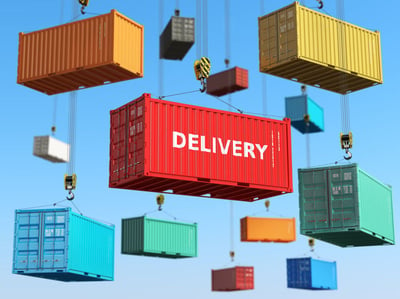Border delay troubleshooting guide
We recently spoke with Jey Sanmuganathan, Cole’s Western Regional Manager of Customs in Canada, to learn more about when to engage a customs broker to avoid delays and penalties.
In this follow-up post, Jey guides you through what to do if, whoops, you:
- Didn’t hire a customs broker, and
- Your shipment is delayed at the border.
What to do if your shipment is delayed
As an importer, the first step you should do if your shipment is delayed at the border or at port is to contact the carrier and determine where your shipment is held up.
Typically, the carrier can tell you where it is stuck but cannot provide details on why the shipment is stuck or delayed. For the most part, it’s usually missing information, but the main question is: what type of information is missing?
Why border delays happen
Border delays do occur for a number of reasons, such as:
- a high volume of passenger and commercial traffic;
- a labor action (strike) at marine ports; or
- inclement weather.
However, these delays aren’t typically significant, except perhaps for labor action. Carriers that move goods across borders should have contingency planning for these types of delays.
The most common factor leading to delays in customs clearance is usually missing or incorrect information on a given shipment. Another reason for delay is that the importer has not made the necessary arrangements to clear a shipment either at the border or at an inland port.
Importers may clear their own shipments through customs, however, this would mean that you will have to physically report to the customs office closest to where your goods are located in order to declare them.
This can be a time consuming process. It may require additional information or paperwork that you may not be aware of prior to reporting to the customs office.
How a customs broker can reduce delays
Customs brokers are able to mitigate delays by reviewing paperwork supplied for a given shipment and make determinations on what information Customs will be looking for.
They also have the ability to determine if the goods being imported are regulated by any other government agency, such as Canadian Food Inspection Agency (CFIA) or Health Canada (HC), and what their requirements may be. Brokers can also assist in obtaining any paperwork or information required to satisfy those requirements.
Essentially, the broker can prepare all needed information and paperwork in advance of the shipment arriving at the border or port. Brokers have the ability to transmit shipment and customs information electronically, which is the quickest way to obtain the customs release of goods being imported.
Are there delays even brokers can’t avoid?
The most common form of unavoidable delay that an importer may face is when goods are examined by Customs or another Participating Government Agency (PGA). Customs examinations are random—even a broker cannot predict when a shipment will be examined.
Examinations typically result in delays and additional charges being incurred by the importer, whether it is for storage, demurrage, detention, de-stuffing, etc. These charges usually will require some form of guarantee of payment.
Customs brokers can assist with guarantees upon approval from the importer which ultimately reduce the risk of further delays and additional storage charges.
An experienced customs broker can handle the details and make the import process easier. We’ve been in the customs brokerage business for more than half a century. We’re ready to help.


